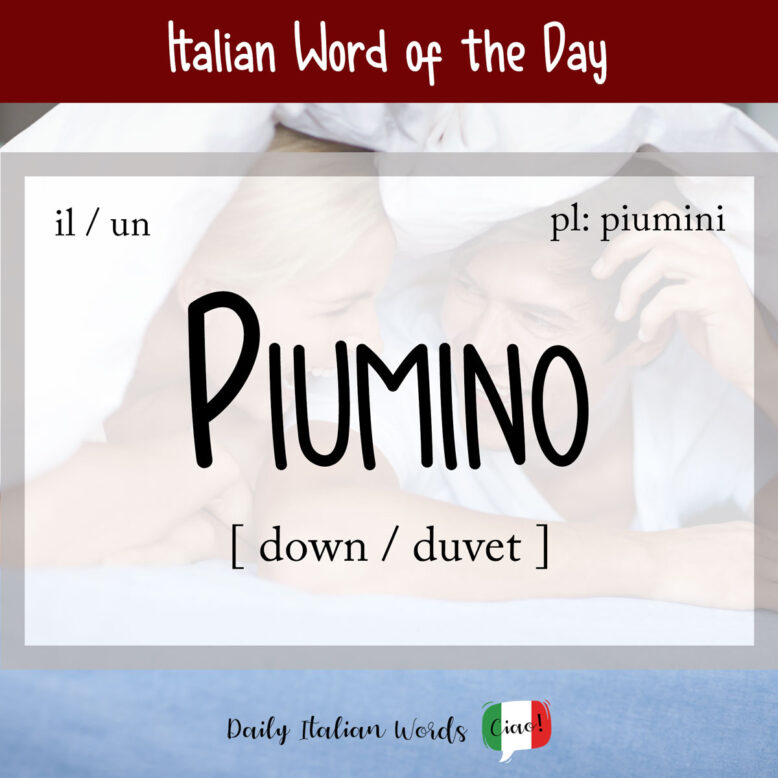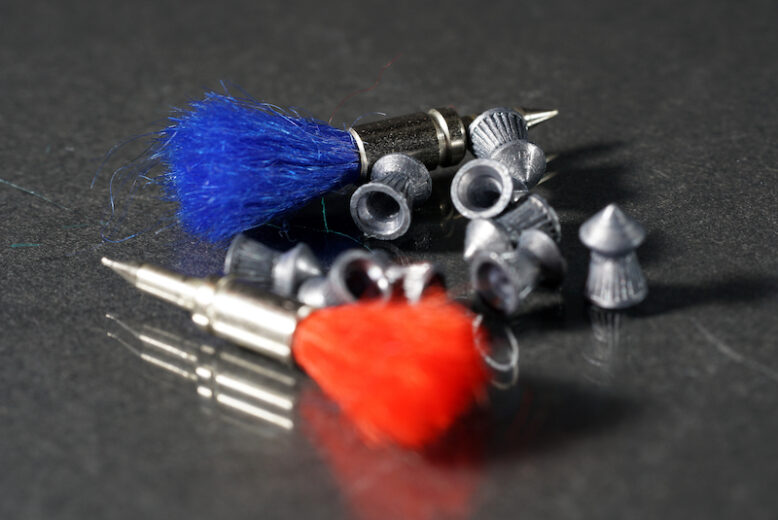Some Italian words encompass multiple meanings, extending far beyond their original definitions, and our word of the day piumino is no exception!

Piumino is a derivative of piuma meaning feather. It is a masculine noun that takes the following definite and indefinite articles:
- il piumino
- i piumini
- un piumino
- dei piumini
Originally, piumino designated the down of birds, which is the layer of delicate feathers situated beneath the more robust outer feathers.
However, over the years, it has also come to denote things that either use down, or physically resemble down. The definition many of you will likely recognise is duvet or comforter.
Fa troppo caldo per il piumino. Bastano le lenzuola.
It’s too hot for the duvet. The sheets are enough.
Unsurprisingly, piumino is also the word for a down jacket, specifically those padded with goose feathers.

Then we have the feather duster, the very best of which use ostrich down. This is because they are very efficient at trapping dirt.
Prendi il piumino e dai una bella spolverata allo schermo della TV.
Get the feather duster and give the TV screen a good dusting.
Finally there is the dart, a type of projectile for compressed air rifles, consisting of a metallic tip and a tail made of colourful feathers.

So, what about those things that don’t actually contain down feathers but bear a resemblance to them? Well, we have the powder puff, also known as piumino da cipria, and cottongrass, whose long white silky hairs evoke the appearance of down feathers.

A similar term with which you might be familiar is piumone, which also means duvet or down jacket. Here we have a fascinating case of a trademark evolving into a generic term for a product, similar to Kleenex and Hoover in the English language. Originally, piumone was registered as a trademark by a renowned home linen company. However, with the widespread use and popularity of the brand, the term piumone gradually expanded to include the meaning of piumino. Today the two terms are interchangeable, with the only difference being that piumoni can also denote trapunti (quilts).
Heather Broster is a graduate with honours in linguistics from the University of Western Ontario. She is an aspiring polyglot, proficient in English and Italian, as well as Japanese, Welsh, and French to varying degrees of fluency. Originally from Toronto, Heather has resided in various countries, notably Italy for a period of six years. Her primary focus lies in the fields of language acquisition, education, and bilingual instruction.


